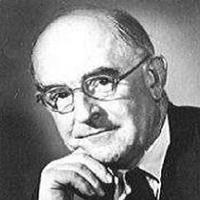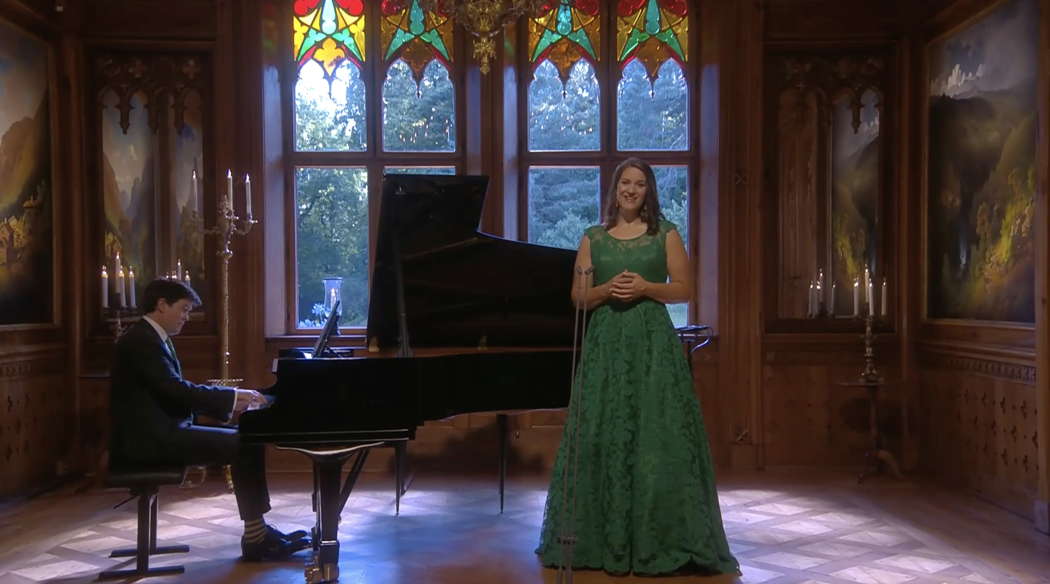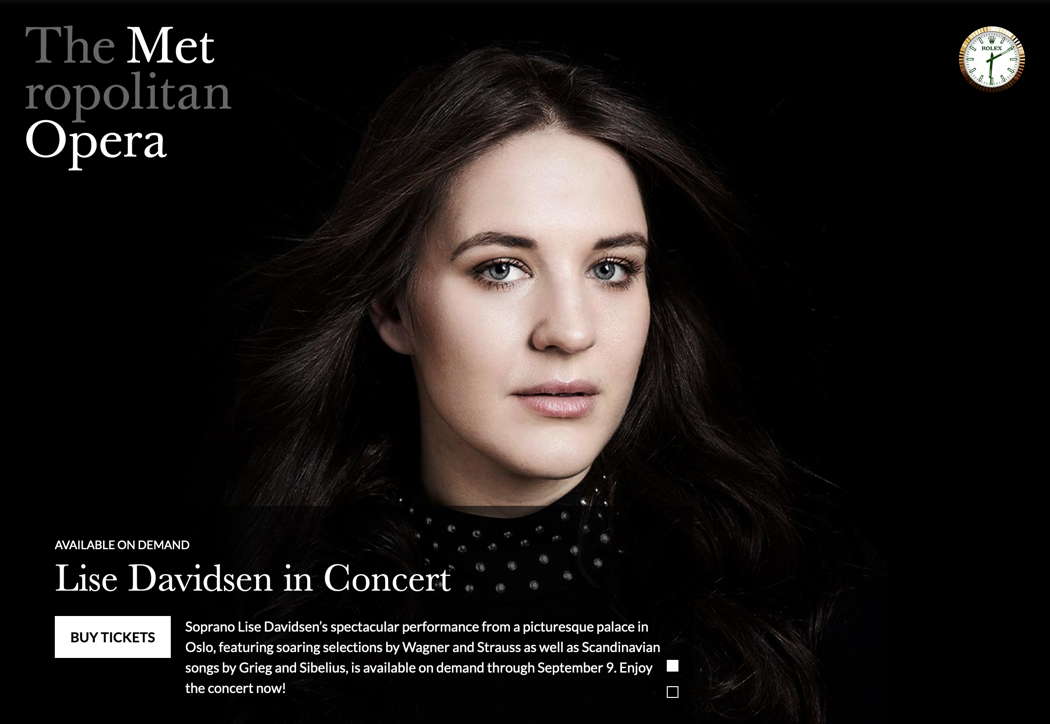 DISCUSSION: What is a work? John Dante Prevedini leads a discussion about The performing artist as co-creator, including contributions from Halida Dinova, Yekaterina Lebedeva, Béla Hartmann, David Arditti and Stephen Francis Vasta.
DISCUSSION: What is a work? John Dante Prevedini leads a discussion about The performing artist as co-creator, including contributions from Halida Dinova, Yekaterina Lebedeva, Béla Hartmann, David Arditti and Stephen Francis Vasta.
 VIDEO PODCAST: Come and meet Eric Fraad of Heresy Records, Kenneth Woods, musical director of Colorado MahlerFest and the English Symphony Orchestra and others.
VIDEO PODCAST: Come and meet Eric Fraad of Heresy Records, Kenneth Woods, musical director of Colorado MahlerFest and the English Symphony Orchestra and others.
 SPONSORED: Ensemble. Unjustly Neglected - In this specially extended feature, Armstrong Gibbs' re-discovered 'Passion according to St Luke' impresses Roderic Dunnett.
SPONSORED: Ensemble. Unjustly Neglected - In this specially extended feature, Armstrong Gibbs' re-discovered 'Passion according to St Luke' impresses Roderic Dunnett.
All sponsored features >>
Seemingly Effortless
Lise Davidsen and James Baillieu's Met Stars Live recital from Oslo, reviewed by MARIA NOCKIN
On Saturday 29 August 2020, Norwegian soprano Lise Davidsen and accompanist James Baillieu gave a Met Stars Live recital at the Oscarshall Palace in Oslo, Norway. Davidsen studied in Norway and Denmark and won both the Operalia and the Queen Sonja competitions in 2015. Baillieu is a professor at the UK's Royal Academy of Music and head of the Song Program at the Atelier Lyrique of the Verbier Festival Academy.
Wearing a demure green silk and lace gown, Davidsen opened with 'Dich, teure Halle', a greeting to a beautiful hall from Wagner's Tannhäuser. Immediately, Davidsen showed her voice to be all that a young Wagner singer might want. She even sang an exquisite pianissimo. Baillieu accompanied every nuance so that they seemed to breathe as one. They continued with a much more difficult aria from the same opera, 'Allmächt'ge Jungfrau', a prayer to the Virgin which showed the singer's vocal range as well as her ability to shape lyrical phrases and spin out a melodic line with complete security. I would love to hear her sing Elizabeth some day.

Lise Davidsen and James Baillieu at Oscarshall Palace in Oslo for Met Stars Live in Concert
Then we shared a few moments Davidsen had spent earlier among the blue and yellow flowers of the palace garden with Norway's most charming Queen Sonja. When the cameras returned to the recital space, we could still see the flowers through the windows that were topped with brilliant amber and green stained glass.
Davidsen and Baillieu's next group contained three short songs that fellow countryman Edvard Grieg wrote to thoughtful poetry. For 'Våren', (Spring) they started softly as green leaves emerge from snow and added texture as the singer's character wondered about seeing another spring. For 'En Svane' (The Swan), Davidsen's voice took on the authority of the majestic bird gliding along the water. In 'Ved Rondane' (Seeing Rondane), the singer vocally described the village as it once was, and as it is now.
Then came an amazing change. Davidsen's voice assumed different characteristics for Italian opera. Up to that point, I had the opinion that she was in the tradition of Kirsten Flagstad but that her voice resembled Birgit Nilsson's because I heard considerable steel in her tone. Nilsson sang a great deal of Italian opera as well as Strauss and Wagner, but her high notes in Verdi were similar to her high notes in Wagner. For Davidsen there are Germanic high notes and Italianate high notes, not just differentiated by language but also by vibrato and the palette of vocal colors. In 'Morrò, ma prima in grazia' from Verdi's Un Ballo in Maschera Davidsen is an Italian mama asking for one last embrace with her child. Tears could come easily here as they could again when she sang of Manon Lescaut's death in the wilderness.
The first of two Sibelius songs is 'Säf, säf, susa', about sighing reeds and a young girl who has gone away because people treated her badly. The colors in Davidsen's voice tell the whole story. The second, 'Var det en dröm?' (Was it a Dream?) describes a beautiful dream, a great memory, but it is still something that will never come true. The artists continue this theme with a glorious performance of 'Es gibt ein Reich' (There is a Land) from Richard Strauss' Ariadne auf Naxos.
The next four songs were from Op 27, the group of songs Strauss gave to his bride, soprano Pauline de Ahna, on their wedding day. With 'Ruhe, meine Seele' (Be at Peace, my Soul), they created an ambiance of calm with the beauteous flow of the song.
'Cäcilie' (Cecilia), is a love poem written by the poet to his wife. 'Heimliche Aufforderung' (The Secret Invitation) begins with 'Auf, hebe die funkelnde Schale empor' (Lift up the sparkling chalice). I loved the joy in the singer's tone and the sparkling notes in Baillieu's accompaniment. The last of the songs the composer included in his wedding present was the beloved 'Morgen' (Tomorrow), a plea in Davidsen's soft, smooth tones for better times for all people.
'Sola, perduta, abbandonata' (Alone, Lost, Abandoned) from the finale of Puccini's Manon Lescaut again showed Davidsen's Italianate vocal treasures and innate interpretative ability.
Then it was time for some fun with operetta. Davidsen and Baillieu performed 'Heia, heia, in den Bergen ist mein Heimatland' (Hey, My Home is in the Mountains) from Kálmán's Die Csárdásfürstin (The Czardas Princess). 'Johnny', a cabaret song by W H Auden and Benjamin Britten, is amusing but a bit sad because the lady has no idea that the gentleman is simply not interested. Two other charming English songs followed: 'O lovely night!' by Landon Ronald and 'When I have sung my song to you' by Ernest Charles. Davidsen and Baillieu topped off their recital with 'I could have danced all night' from Lerner and Loewe's My Fair Lady.

'Lise Davidsen in Concert' from the New York Metropolitan Opera website
For those who have not heard Lise Davidsen before, she has the most interesting vocal instrument heard in opera for several decades. Her voice production is secure and seemingly effortless with substantial steel in its glinting tones.
Copyright © 1 September 2020
Maria Nockin,
Arizona USA

FURTHER NEW YORK METROPOLITAN OPERA REVIEWS


